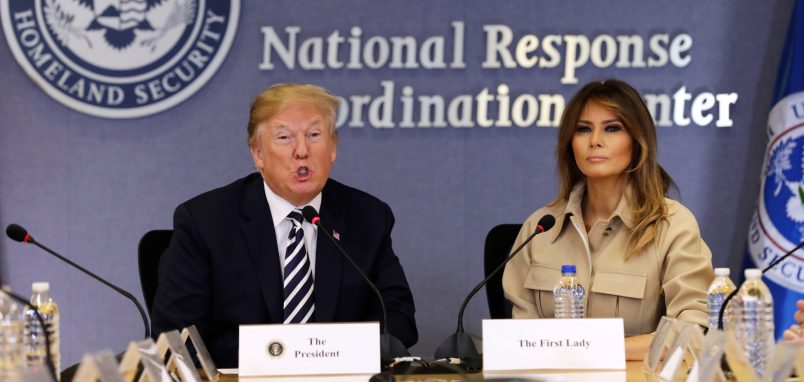As health care workers around the country grapple with shortages in personal protective equipment during the COVID pandemic, the Federal Emergency Management Agency moved Friday to curtail the export of PPE abroad.
In a new temporary rule issued Friday and effective retroactively to April 7, FEMA is blocking the export of various classes of PPE – including N95 masks and surgical masks “without explicit approval by FEMA.”
The new rule also provides that FEMA has the authority to redistribute scarce supplies of PPE.
The rule will remain in effect until Aug. 10, 2020, a sign of how long pandemic conditions may persist in the United States.
“While this rule remains in effect, and subject to certain exemptions stated below, no shipments of such designated materials may leave the United States without explicit approval by FEMA,” the rule, published in the federal register on Friday, reads.
The policy change comes as hospitals, states, and local municipalities struggle with the opposite issue: reports that FEMA is seizing the same materials upon import, preventing them from reaching the groups that ordered them. It remains unclear where those supplies are being redirected or what standards the federal government is using to make those decisions.
FEMA’s new rule on PPE exports cites the Defense Production Act as a primary authority allowing it to screen all PPE exports. It also uses the law as a basis to issue the temporary rule without the typical proposal or review processes.
FEMA said on Wednesday in a statement with Customs and Border Protection – with which it will enforce the rule – that “CBP will detain shipments of the PPE specified in the President’s Memorandum while FEMA determines whether to return the PPE for use within the United States; to purchase the PPE on behalf of the United States; or, allow it to be exported.”
The rule does appear to address a scandal that has developed from the Trump administration’s initial response to the COVID pandemic. Trade data compiled by House Democrats and released on Thursday show that the export of medical supplies from the U.S. to China surged in February, with mask exports in particular more than 1,000 percent higher than the monthly average.
Now, mask exporters will not be allowed to ship their cargo absent explicit approval from FEMA.
But it fails to address the mass confusion around what standard the federal government is using under the DPA to take equipment. FEMA does make a stab at articulating a standard for mandating when PPE vendors will be required to sell to the government under the DPA.
The factors that FEMA says it will consider in deciding include ensuring that scarce PPE is “appropriately allocated for domestic use,” reducing supply chain disruption, potential hoarding concerns, and “humanitarian considerations.”
The rule does allow preexisting export agreements to stay in place, so long as the manufacturer has distributed at least 80 percent of its U.S. production domestically.






